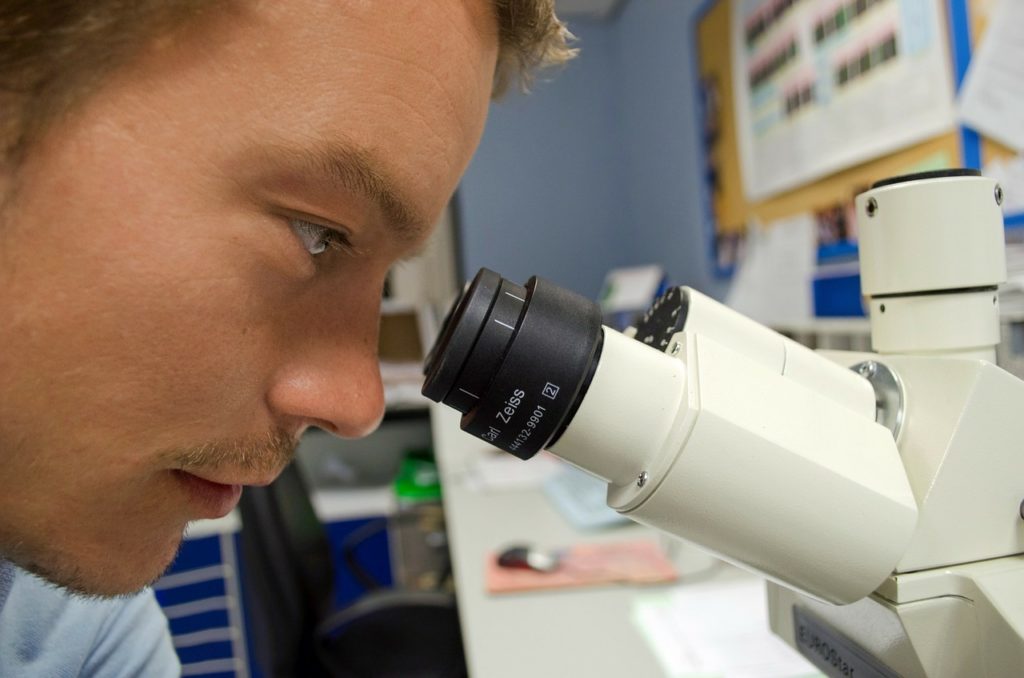- Calls to this hotline are currently being directed to Within Health, Fay or Eating Disorder Solutions
- Representatives are standing by 24/7 to help answer your questions
- All calls are confidential and HIPAA compliant
- There is no obligation or cost to call
- Eating Disorder Hope does not receive any commissions or fees dependent upon which provider you select
- Additional treatment providers are located on our directory or samhsa.gov
Understanding the Process of Research: From Hypothesis to Publication

Contributor: Crystal Karges, MS, RDN, IBCLC, Director of Content and Social Media at Eating Disorder Hope/Addiction Hope
Eating disorders are complex psychiatric illnesses, and through various research efforts, we have come to a greater understanding of these diseases and how to more effectively treat them.
Awareness of eating disorders as well as diagnostic tools, treatment protocols and more have evolved and progressed significantly due to improved research findings. Research studies on eating disorders help bring many of the misunderstandings surrounding these disorders to light and clarity.
Understanding the Research Process
You may be curious as to how a research study unfolds and the process that carries a question through to an actual answer. Scientists studying in the field of eating disorders follow a precise process for addressing the questions they are setting out to answer and study. In general, research studies proceed in the following manner:
- Formulate a Question: To begin, researchers will start with a question that warrants studying and research, such as “How do genetics influence anorexia development”. Determining a specific question helps set the foundation of a study.
- Hypothesis: With a specific question in mind, scientists will them develop a hypothesis, or possible outcome/solution to the question that is being presented.
- Prediction: Researchers will test the logical consequences of the hypothesis
- Testing: In this aspect of the research study that involves experimentation to determine the validity of the hypothesis. Researchers typically design scientific controls to help minimize errors and effectively test subjects involved in their study.
- Analysis: In this stage of research, scientists will work towards a conclusion of their study based on the data and materials gathered from their experimentation. Based on the analysis, researchers can work to answer the original question or to provide insight on the topic being studied.
Becoming Involved With Research Studies
Researchers are working to better understand the many complexities of eating disorders, and often, live participation from those in recovery is often needed in these type of studies. Check out the research page on Eating Disorder Hope to learn more about current research studies and potential ways you might be able to be involved as a participant.
Community Discussion – Share your thoughts here!
How do you think research has contributed to a better understanding of eating disorders today?
 About the Author: Crystal is a Masters-level Registered Dietitian Nutritionist (RDN) with a specialty focus in eating disorders, maternal/child health and wellness, and intuitive eating. Combining clinical experience with a love of social media and writing, Crystal serves as the Special Projects Coordinator for Eating Disorder Hope/Addiction Hope, where her passion to help others find recovery and healing is integrated into each part of her work.
About the Author: Crystal is a Masters-level Registered Dietitian Nutritionist (RDN) with a specialty focus in eating disorders, maternal/child health and wellness, and intuitive eating. Combining clinical experience with a love of social media and writing, Crystal serves as the Special Projects Coordinator for Eating Disorder Hope/Addiction Hope, where her passion to help others find recovery and healing is integrated into each part of her work.
As a Certified Intuitive Eating Counselor, Crystal has dedicated her career to helping others establish a healthy relationship with food and body through her work with EDH/AH and nutrition private practice.
The opinions and views of our guest contributors are shared to provide a broad perspective of eating disorders. These are not necessarily the views of Eating Disorder Hope, but an effort to offer discussion of various issues by different concerned individuals.
We at Eating Disorder Hope understand that eating disorders result from a combination of environmental and genetic factors. If you or a loved one are suffering from an eating disorder, please know that there is hope for you, and seek immediate professional help.
Last Updated & Reviewed By: Jacquelyn Ekern, MS, LPC on July 10, 2016
Published on EatingDisorderHope.com

The EatingDisorderHope.com editorial team comprises experienced writers, editors, and medical reviewers specializing in eating disorders, treatment, and mental and behavioral health.

